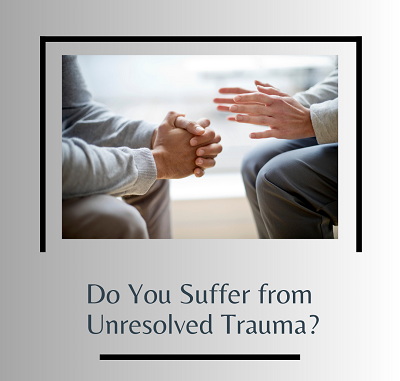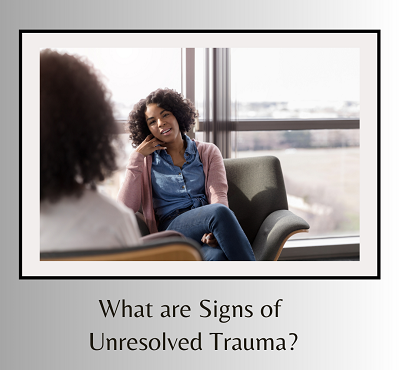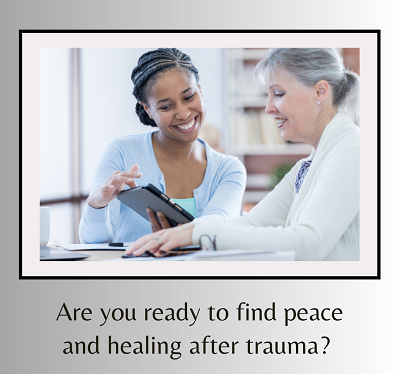Trauma is defined as, “a deeply distressing disturbing experience.”
Now, here’s where it gets tricky, “distressing” and “disturbing” are subjective to each person.
There’s no way to decipher whether or not something will have a lasting impact on you. A specific event could cause you trauma. Then that event could cause you to ruminate over it obsessively. While someone else may experience the same event as a mere setback.
RTC provides counseling in Fair Oaks, CA and for years have seen examples of trauma and it’s impact on people. Our therapists know firsthand how individuals process traumatic experiences differently.
Traumatic occurrences such as car accidents or being the victim of a brutal crime are clear. When you are attacked by a dog you can easily label it trauma and understand.
For example, in the past, say you have been bitten by a dog. Now when a dog bounds toward you, instinctively you panic. Your heart starts thudding faster than the tempo of an upbeat mariachi band. Then you break into a tingly hot and cold sweat. Every fiber of your being is sounding the alarm bells! Bells that remind you of what happened last time, are trying to keep you safe. Your body attempts to save you from going through the experience again. And those are just the traumatic events you can remember.
When you have unexplained or terrifying events happen in childhood you don’t have the ability to fully comprehend them. In fact, you might not even remember the event and that can leave trauma as well. As a consequence, those experiences shape the course of the rest of your life without you even realizing it.
To illustrate, being bullied on the playground may have caused you to believe that there’s something fundamentally wrong with you. Because you believe you are not good enough or don’t measure up in some way you change your behavior to stay safe. In order to protect yourself now, you make yourself small. The opinions of playground bullies now impact the rest of your life, but you don’t even realize it. You forgot all about those early moments that shaped that belief in the first place.
Does Trauma Have a Purpose?
It exists simply to keep us alive. Long after a traumatic experience has passed, your nervous system will pick up on environmental cues. These cues remind you of the traumatic experience when you’re in a similar situation. Cuing adrenaline and cortisol then screaming danger signs.
During the initial stage of human development, you had to be terrified after a lion encounter. Likewise, to be kicked out of the social group was something that could lower your chances of survival significantly. Thus, having a cavalier attitude toward lions and other people’s opinions decreased your chances of survival. In the wild, animals are usually not left with “trauma.” They run, they become safe and are back in a safe environment in their community. We often don’t complete that stress cycle and the affects of the trauma get stuck.
Signs of Unresolved Trauma
Let’s look at some signs that indicate you may have unresolved trauma.
- suffer from anxiety
-
present hyper vigilant
-
tend to get angry and feel regret or remorseful after
-
isolate
-
avoid going certain places
-
feel numb and disconnected
-
tend to overreact
-
seek comfort in food, drugs, or alcohol
-
have trouble sleeping
-
aren’t connected to your inherent value as a human being
-
notice that certain situations that other people enjoy make you feel anxious and unsafe
-
can’t stop replaying a disturbing event through your mind, over and over, perseverating
Note: If you suffer from any of those symptoms, search, ‘counseling near me’ to find a therapist who can help.
Unresolved Trauma Needs Treatment
Adversity arises from a wide range of experiences. Rather than judge yourself, avoid interactions, or demand you “toughen up,” it is important to understand that you can work through it.
Unsettled trauma can pile up. Life doles out challenges. Sometimes it feels like one on top of another. The more experience you have processing trauma, the more resilient you become, and the quicker you’re able to bounce back. This is known as “post traumatic growth.”
Therefore, the best way to work through trauma, is to see a mental health professional. A therapist will guide, encourage, and educate you as you navigate difficulties. Next you will explore unresolved trauma, process it, and find relief. Afterwards, you will find healing.
At the Relationship Therapy Center, our therapists in Fair Oaks, CA have experience helping all sorts of people reclaim control over their lives. In addition, we offer PTSD therapy in Roseville, CA.
We’re here for you and your family to help empower you to reclaim your life. Wake up each morning feeling excited about the day.
Begin Trauma Therapy in the Sacramento Area or Online:
Are you ready to find peace and healing after trauma? We are here to support you and provide high-quality evidence-based trauma treatment to people in the Sacramento Area and online for people living in the state of California. To begin trauma therapy in Fair Oaks, CA or Roseville, CA, please follow these steps:
-
Reach out to our relationship therapy clinic for a free 20-minute phone consultation to learn more about trauma therapy
-
Meet with one of our compassionate trauma therapists
-
Begin trauma treatment and regain control in your life.
Other Services Offered at The Relationship Therapy Center in California:
In addition to trauma therapy, Our Sacramento area counseling clinics located in Roseville and Fair Oaks, CA are pleased to offer a variety of mental health services. Our couples services include: Couples Counseling, Counseling after infidelity, sex therapy, co-parent counseling, family therapy, divorce counseling, intensive couples retreats, and premarital counseling. Our individual therapy services include anxiety treatment, therapy for children, teen therapy, depression treatment, codependency counseling and individual relationship counseling. Our therapists offer online counseling in California to treat a variety of mental health concerns. Please reach out to our Sacramento area therapy office to learn more about the many ways we can help you or your loved ones.
- Is Our Communication Bad Enough for Therapy? - February 19, 2026
- What are Examples of Trauma? - February 12, 2026
- What Actually Happens in an EMDR Session? - February 5, 2026



